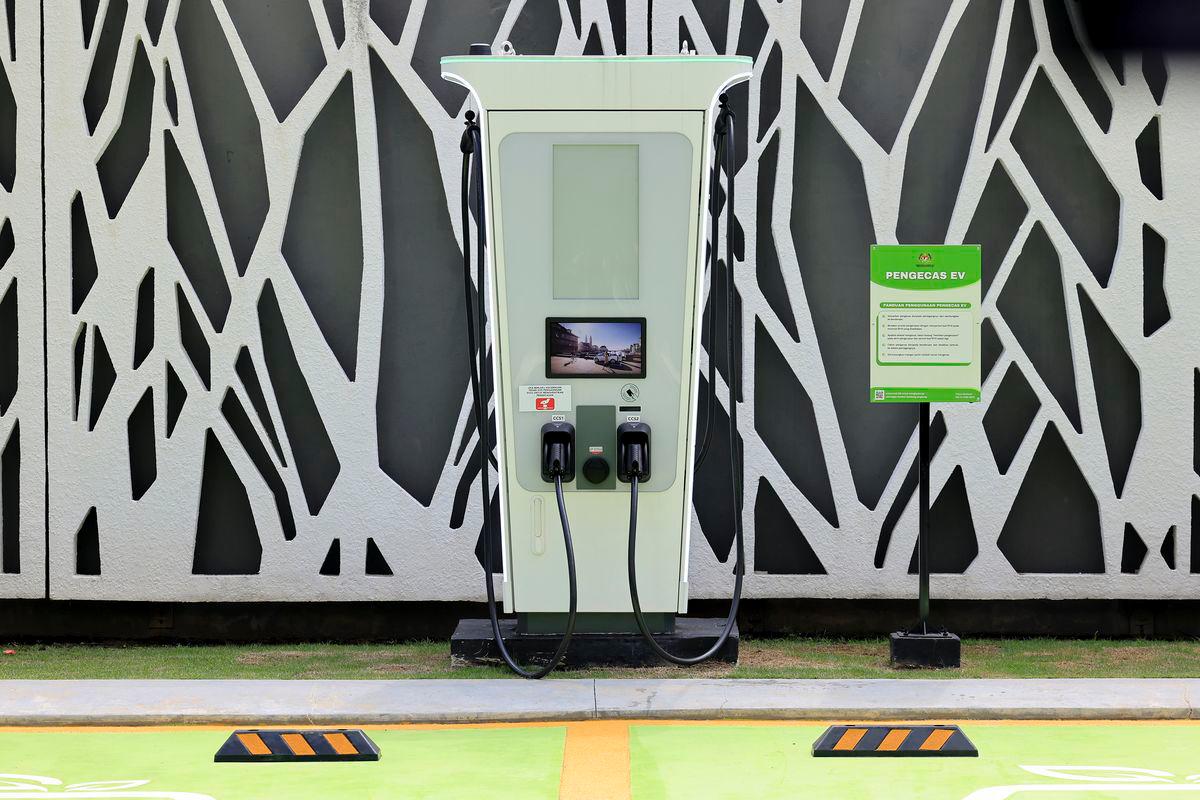KUALA LUMPUR: Malaysia has established over 4,100 electric vehicle charging points nationwide to accommodate the increasing demand for electric vehicles.
Deputy Prime Minister Datuk Seri Fadillah Yusof confirmed the infrastructure development as part of the country’s green mobility initiatives.
The Energy Transition and Water Transformation Minister stated these efforts aim to reduce transport emissions while positioning Malaysia as a regional sustainable mobility hub.
He explained that Malaysia is rapidly expanding its electric vehicle ecosystem through charging infrastructure and public fleet electrification policies.
Fadillah revealed these details during his opening speech at the International Conference on Chemical and Energy Engineering 2025.
The National Energy Transition Roadmap guides Malaysia’s strategic pathway toward achieving Net Zero Emissions by 2050.
Six key levers support this roadmap including energy efficiency, renewable energy, bioenergy, hydrogen, green mobility and carbon capture.
Malaysia has set ambitious goals to ensure electricity for electric vehicles comes from green energy sources.
The country aims to raise renewable energy share in the power mix to 70% by 2050 while doubling national energy efficiency savings to 22%.
Practical measures already in motion include large-scale building retrofits and stronger efficiency standards for appliances.
The expanded use of biodiesel from B10 to B20 in transport represents another tangible step creating visible progress.
Fadillah highlighted hydrogen as a new frontier of opportunity through the Hydrogen Economy and Technology Roadmap.
This roadmap envisions Malaysia as a clean hydrogen hub in the Asia-Pacific region by mid-century.
Hydrogen development could generate over RM400 billion in revenue and create 200,000 new jobs by 2050.
The initiative also aims to cut greenhouse gas emissions by 15% through hydrogen implementation.
Complementary legislation includes the forthcoming Climate Change Bill and Carbon Capture, Utilisation, and Storage laws.
Pilot projects such as ammonia co-combustion at Tenaga Nasional facilities demonstrate cleaner fuel scalability and safety.
These projects have achieved up to 60% blending, proving the practical application of cleaner energy solutions.
Events like the International Conference on Chemical and Energy Engineering 2025 help translate vision into reality.
Such platforms foster cross-sector collaboration and inspire innovation for Malaysia’s net-zero journey.
The conference strengthens both Malaysia’s resilience and its contribution to global sustainability efforts. – Bernama









